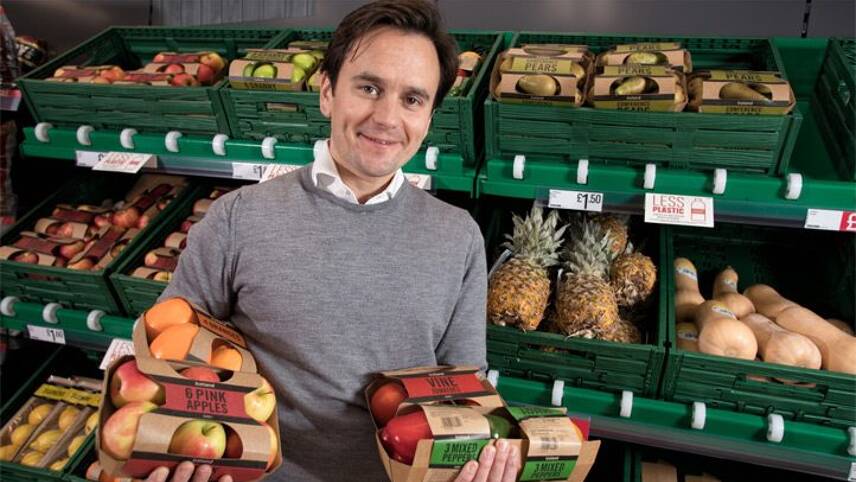Register for free and continue reading
Join our growing army of changemakers and get unlimited access to our premium content

Iceland's MD Richard Walker (pictured) says the new formats collectively contain 93% less plastic than current packaging
The first phase of the trial will begin at 33 of Iceland’s stores in Greater London and the South East later this week, to collect information about the impact of the new packaging formats on factors like customer choices and food waste.
During phase one, packaging on 27 produce lines will be changed, while phase two will begin on 4 March and see packaging altered across a further 11 lines.
Products included in phase one of the trial include multipacks of potatoes, peppers, apples and carrots. Phase two will see Iceland trial new plastic-free packaging for banana bunches, after trials of cardboard bands in 2019 were found to increase in-store food waste.
Iceland has not yet provided information around the specific packaging formats that will be introduced. However, it estimates that the new formats will reduce plastic packaging on the lines included in the trial, collectively, by 93%. This means the supermarket will mitigate the use of seven tonnes of single-use plastic during the trials alone.
Iceland’s managing director Richard Walker said the trial is “fully scalable”. The supermarket plans to use data collected during the trials not only to make decisions on a wider roll-out, but to alter its strategy for eliminating plastic across all own-brand lines within the next three years.
“We understand that consumers are particularly aware of the amount of plastic being used to package produce across the industry and we’ve been working hard to develop user-friendly, sustainable alternatives,” Walker said.
Switches already made at Iceland stores include cardboard packaging for frozen lines like pies and desserts; paper shopping bags, instead of plastic bags-for-life; and loose vegetables and fruit instead of pre-bagged multipacks. The retailer estimates it has removed more than 2,100 tonnes of plastic from shelves since 2017.
In response to research from the BBC’s War on Plastic team, which concluded that the price difference between plastic-free groceries and those housed in plastic at UK supermarkets can be as high as 42%, Iceland will be selling the new trial formats at price parity with the older, plastic-coated formats. Walker said this decision serves to “democratise choice”.
Plastics, plastics, everywhere…
In related news, Selfridges has committed to removing all plastic-based glitter from cosmetic aisles by 2021.
Despite its metallic appearance, most glitter is made up of PET plastic bonded to aluminium. This makes it a source of microplastic pollution. Unlike microbeads, there is currently no legislation banning or limiting plastic glitter use in health and beauty products in the UK.
In order to reach the new target, Selfridges will work with 300 of its suppliers to help them develop and supply alternative formulas.
“By removing all micro-plastic glitter products from our beauty offer, we hope to inspire our customers, suppliers and fellow retailers to act responsibly, seek alternatives and make positive change through transparent and meaningful action,” Selfridges’ director of sustainability Daniella Vega said, noting the retailer’s broader commitment to ongoing plastics reduction.
The move from Selfridges builds on glitter phase-out announcements from the likes of Aldi UK & Ireland, Tesco and Waitrose & Partners. Cultural institutions have also taken heed, with plastic glitter now banned from more than 60 UK-based music festivals, as well as BBC show Strictly Come Dancing.
Sarah George


Please login or Register to leave a comment.